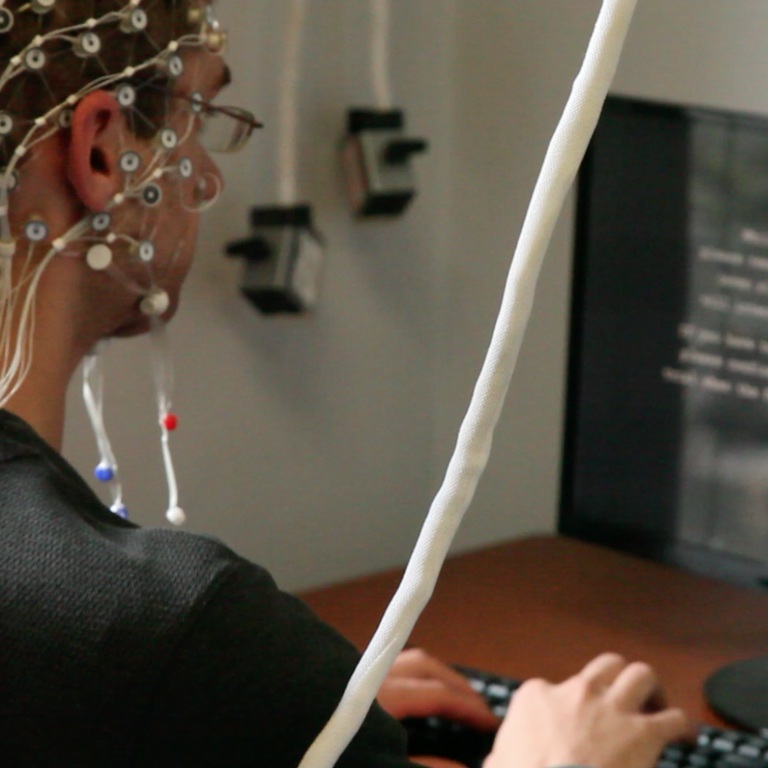Judith Glück is a professor of Developmental Psychology at the University of Klagenfurt in Austria. Her research focuses on wisdom of the individual and how it develops over time. She also studies contextual conditions for the manifestation of wisdom, and how wisdom could be measured in an ecologically valid way.
In this interview, Dr. Glück discusses how she came to study wisdom at the Max Planck Institute for Human Development, and how the “MORE life experience model” of wisdom identifies the resources that can foster the development of wisdom.
Jean: How did you first become interested in wisdom research?
Dr. Glück: Well, that was a chance encounter. I used to be a methodologist so my work was largely on item response modeling and a little bit on spatial cognition. I did my dissertation on strategies in spatial cognition and then applied for a post doc at the Max Planck Institute for Human Development in Berlin. I was hoping to learn new methods there; and Paul Baltes put me right into the wisdom project. I was actually quite worried in the beginning. It seemed a little bit esoteric to me and very distant from what I had been doing though certainly interesting. Well, I got caught up in this I guess. It really got interesting the more I did it. When I left Berlin, I found that this was going to be my area of work.
Jean: Would you explain a bit about the MORE life experience model of wisdom?
Dr. Glück: One of my main interests is how wisdom develops. Why do so few people really become wise in the course of their lives? It actually sounds like something that everybody probably wants to achieve, but very few people eventually become those wise individuals that we all turn to. So I was wondering, ‘Why?’ Why is it so difficult? And what moves some people towards wisdom? Susan Bluck and I have been working together on this. She's doing exciting research on autobiographical memory, people's life stories, and how they integrate experiences into their own story of their own development. We got to talking about how life experiences are probably the main catalysts of wisdom. I mean, really life changing experiences, serious things which might be positive or negative, but that shatter your life and change the way you live and see life severely. When you look at what people say about their lives, it's obvious that these experiences are what teaches us something and changes us. But the question was ‘Why do so many people learn things that make them happier or maybe make them better people, but do not necessarily make them wiser?’ So what does it take to grow wiser from an experience?
Our main assumption is that certain resources may affect what kinds of things you actually experience in your life and how you deal with them and reflect upon them. If you are a person who is more open to experience, for example, you're more likely to move to a different country or to encounter different kinds of people and that may make you wiser. So the resources shape what happens to you to some degree. They certainly shape how you deal with whatever happens; and they also shape how you think about an experience later and how you integrate it in your life story and your view of yourself.
And so we've been proposing five resources that we assume to be most central for the development of wisdom. They include a) reflectivity, being willing to think deeply about things including about yourself, b) openness, which means being interested in any kind of experience, especially in those that are not totally in line with what you have had before in your life, c) emotional regulation, being aware of your own subtle emotions and being able to deal with them and regulate them rather than suppress them, d) empathy [which is] very important, being aware of what other people think and feel and caring about what they think and feel. We believe that this extends in wise people beyond just a few people whom you know in your life to involve humankind in general or at least larger groups of people, and e) a sense of mastery, which means not simply feeling that you're in control of everything, but on the contrary being aware of how many things in your life you cannot control, but that even if you cannot control them, you can deal with them.
Jean: How did you build the MORE model of wisdom upon your early work at the Max Planck Institute?
Dr. Glück: I did build on the Berlin group’s developmental model of wisdom, which proposes certain personal factors that may make some people more likely to become wiser; and there's certain contextual factors such as life experiences or historical context, which are not in our model. Then there is what they call expertise specific factors, which include things like motivation, reasons why some people become experts on issues of human life. But what has been particularly important to Susan and me is to look at what Ursula Staudinger has called 'personal wisdom', because we are really interested in how people change through their own experiences. So our model is not so much about how people think about life in general. It's more about how people have learned to take a look at their own life experiences and problems.
Jean: In your (2012) paper ‘Who knows who is wise? Self and peer ratings of wisdom’, you note specifically that there are a few confounds with the ways we currently study wisdom in both self-report measures and in performance assessments. What might you suggest for better or different methods in order to measure wisdom?
Dr. Glück: In that particular paper, our main point was about having informants judge people's wisdom. The main finding in that paper was a big surprise for all of us. There was this zero correlation between informant ratings of wisdom, self-ratings of wisdom, and a self-report wisdom scale of wisdom. It was actually a fun study because we did it in our own university. People from different university departments were rating each other and themselves for wisdom. We [found] people who were rated highly by others, but who rated themselves really low on wisdom…as well as the exact opposite: people who rated themselves as high and were rated as low by others! It was really funny to look at those patterns. It would actually have been quite nice to have a look at age effects and other person variables, but we couldn't do that in that study. It was anonymous, which we had to do. We had no idea who was who.
Anyway, I still can't really say how we should best measure wisdom. In that study, we thought it might really be a good idea to take other people into the picture: I would be much more confident to consider a person as wise if three different people who know him or her well will also agree that this is a wise person. We've had mixed experiences with using nomination procedures, where we looked for people who knew someone who they considered wise and then asked them to nominate that person to us. That works quite nicely when the person knows the nominee well. It doesn't work well if the person just has the vague idea that someone is wise because he or she once said that really interesting thing.
I still think that performance measures of wisdom are a good idea. I think that self-report measures work well if you just want to get a quick impression. They are efficient for capturing what individuals think about themselves, which may be only part of the story. As we all know, when it comes to competencies, we are all really good at overestimating our capacities. So I think it doesn't make that much sense to ask a person, for example, how good they are at identifying their own subtle emotions, because if they don’t even know they have subtle emotions (because they can't identify them), they probably believe they're quite good at that. It may work well when it comes to attitudes, to personality aspects, but it certainly works less well when it comes to competencies.
Performance-based measures are most convincing to me, but they are really, really hard work to administer and to code. So I still believe there might be some kind of intermediate thing that's easier to code, that can be administered in a written version, something like a vignette-based measure. I think there are lots of interesting developments going on. I believe we will come up with better measures, but right now I couldn't really say I know the best way.
Jean: Do you think you could get closer to measuring wisdom if you measured the different components in the MORE model?
Dr. Glück: We are currently trying to develop a self-report measure for the MORE components. We have been working really hard to do it well. We developed something like 150 items and then had several rounds of expert ratings trying to assign them to the different dimensions again and again. And we've narrowed it down to 25 items now, which seem to be working nicely except for reflectivity. Reflectivity, as we define it, is the motivation to think deeply about complex issues, but we believe there is a strong competence component to reflectivity, which basically means: you may think you're a reflective person, but if you don't have the intellectual abilities to actually think about something complex in its whole complexity, then you won't be very good at doing that. So we may end up doing a combination of self-report for some of the components and some performance-based or vignette-based tasks for reflectivity, or rather reflective competency. We are still in the middle of developing it. The other thing is that the MORE model is really not a model of wisdom, but of the resources for the development of wisdom. So even if a person is high in those resources, I would prefer to say that this person is probably on the way or on the path towards wisdom, but not necessarily a wise person yet, depending on what life experiences they've had.

Judith Glück, Ph.D.
Professor of Developmental Psychology, University of Klagenfurt



